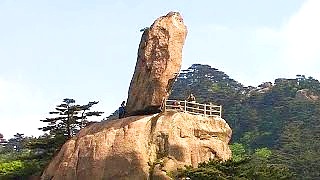A short story for the Chinese New Year.
The Spring Festival is about a new year, a new beginning. A time of renewal, and hope and a fresh start, a time of good-will.
For example, fireworks, apart from being a joy to all, are to scare away bad spirits. One can see this symbolize the breaking of old habits of thought - a spring clean of the mind.
A new year is a new chance for a better life - if you will take it. Keep your eyes open, heart abundant, and strive for a better world. Help others on their journey whenever you can and always share a smile. It may help another, but it will certainly be good for you.
Someday, even the mountains will be gone. But right now we are alive, and we can make a difference.
When faced with bad-will, take it on the chin and return only affection. It might leave a seed for the future; at least, it will not get you down.
As the film says, yes, it is love that brings us closer to happiness ...
Above all, the Spring Festival is a time for family. And ultimately, we are all sisters and brothers breathing the same air ...
[640],shadow=true,start=,stop= Chinese New Year (CNY), also known as the Spring Festival, is the most important traditional holiday in China, marking the beginning of the lunar new year. It is celebrated by Chinese communities around the world, as well as in other East Asian countries such as Taiwan, Singapore, and Malaysia. Here's an overview of Chinese New Year and its traditions:Timing and Duration:
Lunar Calendar: Chinese New Year follows the lunar calendar, with the date falling between late January and mid-February each year. The exact date varies because it is based on the lunar phases.
Festival Period: The celebrations typically last for 15 days, beginning on the eve of Chinese New Year and ending with the Lantern Festival on the 15th day of the lunar calendar.
Traditions and Customs:
Family Reunions: Chinese New Year is a time for families to come together and celebrate. Many people travel long distances to reunite with their relatives, leading to the largest annual human migration in the world, known as Chunyun.
Cleaning and Decoration: In the days leading up to Chinese New Year, families clean their homes to sweep away bad luck and make way for good fortune. They also decorate their homes with red lanterns, couplets (duilian), and paper cutouts featuring auspicious symbols.
Chinese New Year's Eve Dinner: The New Year's Eve dinner, known as 'reunion dinner' (??? tu�nni�nf�n), is a lavish feast shared with family members. Traditional dishes include fish (symbolizing prosperity), dumplings (symbolizing wealth), and various other symbolic foods.
Red Envelopes (Hongbao): Red envelopes containing money are given as gifts during Chinese New Year, especially to children and unmarried individuals. The red color symbolizes good luck and wards off evil spirits.
Fireworks and Firecrackers: Fireworks and firecrackers are set off at midnight on New Year's Eve and throughout the festival period to scare away evil spirits and bring good luck.
Lion and Dragon Dances: Colorful lion and dragon dances are performed in streets, parks, and public squares to bring prosperity and good fortune to communities.
Zodiac Animals:
Each Year is Associated with an Animal: Chinese New Year is symbolized by one of the 12 animals in the Chinese zodiac cycle. Each animal is believed to influence the personality traits and destiny of individuals born in that year.
Travel and Celebrations:
Spring Festival Gala: The Spring Festival Gala, broadcasted on Chinese television on New Year's Eve, features a variety of performances, skits, and musical acts. It is one of the most-watched television programs in the world.
Temple Fairs: Traditional temple fairs are held throughout China during Chinese New Year, offering food stalls, performances, games, and cultural activities for visitors to enjoy.
Chinese New Year is a time of joy, reunion, and renewal, filled with rich traditions and customs that have been passed down through generations. It is a celebration of family, community, and the arrival of spring, marking a fresh beginning and the promise of prosperity in the year ahead.

 Going home …
Going home …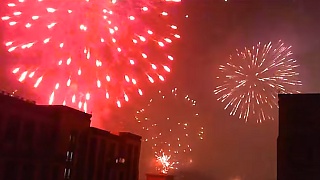








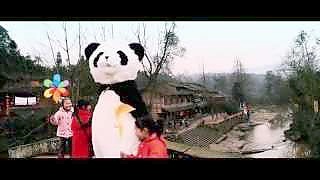


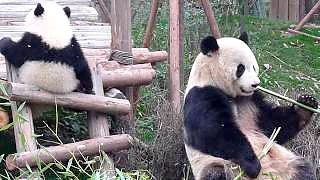

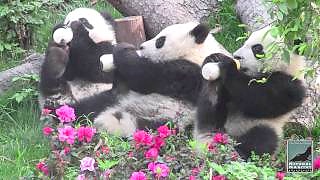










![A great film of the Great Wall north of Beijing, including `wild wall`, accompanied by great music (踏古 (Ta Gu) by Lin Hai, `Walking into Ancientry`, with Chinese lute (pipa)). We [mum, dad - videographer - and son and daughter, from Singapore] hiked 3 sections of the Great Wall in winter, without any guides after studying blogs and posts by fellow hikers. All these sections are different. From the unrestored GuBeiKou Great Wall where we were the only people around, to the wonderful JinShanLing, where the climb is steep and every direction gives you good photo opportunities, to the restored MuTianYu where we hiked in heavy snowfall. We stayed at local farmhouses on both nights, dined with the locals and hitched rides to nearby bath-houses. Temperature ranged from -5 deg C (day) to -12 deg C (night). Winter daybreak is at 7am and the sky becomes dark by 5pm so one has only 10 hours of daylight, so plan your travelling and hiking schedules carefully. This once-in-a-lifetime experience was captured on video and we would like to share it with you. The feelings just can`t be described - you need to experience it first hand. Take only memories, leave only footprints and kindness ... A wonderful animation combining traditional Chinese painting and dance - don`t miss it ! 踏古-林海 作曲:林海 视频作者:中国传媒大学动画学院 Hiking the Great Wall 长城 of China in the snow](https://www.beijingbuzzz.com/b183.jpg)



